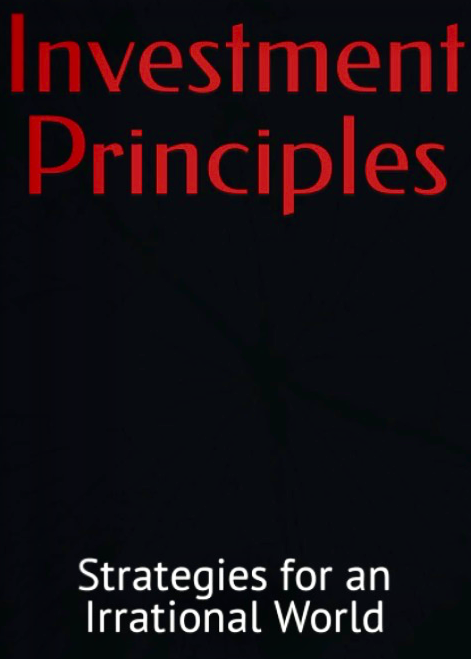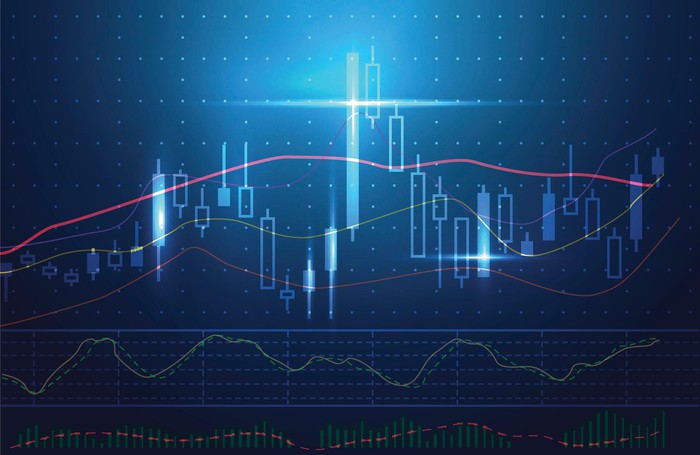
by Nicholas Mitsakos | Economy, Investment Principles, Public Policy, Writing and Podcasts
Interest rates are increasing, and bills are coming due for banks, taxpayers, and bondholders. More worryingly, rising interest costs will squeeze government budgets more than realized. Toss this onto the pile of higher energy costs, rising defense spending, aging populations, slowing growth, and the need to address climate change. As short-term interest rates rise, profits from quantitative easing will disappear (it was over $1 trillion from 2010 to 2021, for the US government).
More broadly, a full accounting of interest rate sensitivity is terrible news for the central banks in Britain, Japan, Europe, and the United States. Higher interest rate costs will impact budgetary flexibility, central-bank profits will be limited or disappear, and costs will be substantial, whether born initially by governments, the banking system, or taxpayers. Eventually, taxpayers will pay.
Government budgets will continue to be squeezed and economic flexibility will be limited or lost. That’s right, I don’t hear any music either.

by Nicholas Mitsakos | Economy, Finance, Investment Principles, The Market, Writing and Podcasts
The Fed’s latest projection was for annual inflation to fall from over 5% at the end of 2022 to about 2.5% by the end of 2023. At this point, we’re not taking the Fed’s projections seriously, and for good reason. They were spectacularly wrong when a depth of understanding and insight into critical future events was essential. In other words, the understanding of how the economy works, the Fed’s ability to predict the effects of economic shocks, and its policy actions have gotten no better over the last 50 years. More specifically, price stability doesn’t seem to be coming anytime soon because people simply don’t think it will. If we look at the combination of rising wages and inflation expectations for both consumers and businesses, it is these expectations that drive inflationary pressures more than central bank policy. Inflation levels will be stickier than first theorized by the Fed, and the time to resolution is likely longer. Expect more “surprises” that will be no surprise.

by Nicholas Mitsakos | Algorithmic Trading, Investment Principles, Investments, irrationality, Writing and Podcasts
The illusion that one can either predict or get ahead of cycles, or predict when they will end is why most investors underperform the market. Markets are driven by human emotion, and it is human emotion combined with the supply and demand dynamic that determines price. Therefore, pricing is independent of anyone’s perspective about “intrinsic value.” Markets are based on price, price is based on supply and demand, and that dynamic is subject to abrupt changes based on the whims of small numbers, and sometimes exceptionally large numbers, of investors. Human behavior controls the markets. Optimism, pessimism, psychology, fear, conviction, and resignation all play a role in adding to volatility and uncertainty. Frequent and intense volatility is here to stay. Market movements really can’t be predicted unless they are at extremes when prices are at absurd highs or lows. But, picking the high or the low is a fool’s errand. Understanding and profiting from volatility, managing risk, and believing in a sustainable investment model is still the best strategy.

by Nicholas Mitsakos | Book Chapter, Investment Principles, Investments, irrationality, The Market, Writing and Podcasts
The world may appear to be a rational, deductive place if you are a scientist. But not if you are an investor attempting to understand how markets work. Financial markets are human creations, and humans are irrational. Economics, a truly dismal social science, is an attempt to look backward and create explanatory algorithms about what happened and why. They may have some success with this. But as predictive models, they are mostly useless. More often, they destroy value versus conveying any understanding about economic and business functions, and therefore, give not only useless but awful and typically value-destroying predictions. Participating in the markets requires a broader, more methodical and disciplined approach. Since irrationality pervades most activity, markets move dramatically with uncertainty, and investors react with dramatic moves based on even more uncertainty and lack a reasonable level of understanding and longer-term perspective about what is going on. The world now is more dynamic, volatile, uncertain, and unpredictable. Irrationality drives most market decisions and rising above the noise to be more thoughtful, think deeply and slowly to understand what’s going on, and identify the handful of factors (typically very few) that make all the difference to investment success is the true challenge we face today. That challenge takes work and thoughtful strategies in our irrational world. That world will remain fundamentally irrational from now on, and thoughtful strategies are the only way to succeed in this irrational environment.
by Nicholas Mitsakos | Book Chapter, Investment Principles, Investments, The Market, Writing and Podcasts
[iframe style=”border:none” src=”//html5-player.libsyn.com/embed/episode/id/22640267/height/100/width//thumbnail/yes/render-playlist/no/theme/custom/tdest_id/2730845/custom-color/3a8da9″ height=”100″ width=”100%”...

by Nicholas Mitsakos | Book Chapter, Investment Principles, Investments, Writing and Podcasts
Investment models that account for uncertainty, volatility, and failure succeed in the long term. Events in Ukraine, oil and natural gas markets, commodities, supply chain disruption, and spiking inflation highlight that, while none of these were predictable, all represent increasing uncertainty permeating all markets. The pandemic and war in Ukraine were unforeseen, but that’s just the point, unforeseen events will occur. It is a waste of time to try to predict the specifics, it is an essential investment strategy to manage risk to not only withstand but profit from “certain uncertainty.” Irrationality, not only in human behavior (with unfortunate, often tragic results) but market movements, investment volatility, and bewildering prices, is another certainty. “Mr. Market” as Benjamin Graham said, “is an irrational schizophrenic.” Investing as if he is not assures an investment strategy that will ultimately fail. An increasing number of growth and momentum investment funds are shutting down after sustaining significant losses recently, a sign of the severe pain the selloff in growth stocks is inflicting. More importantly, it signals an inability for investment funds to manage risk and understand that markets and investments do not move in a singular direction for long, and the correction is sudden and painful – regardless of how compelling “momentum” may seem. Risk management is the key to investment sustainability, but this seems to go ignored among most investment professionals. Frequent and extreme volatility is here to stay, and that is likely to decimate growth and momentum funds, as well as highly leveraged equity investment funds (from LTCM in 1998 to Archegos in 2021, the lesson is never learned for long – and there will be more examples to come). Clear and coherent markets, free from political agenda, bad compromises, and ineffective regulation are almost nonexistent. The consequences continue to be pyrotechnic.

by Nicholas Mitsakos | China, Economy, Investment Principles, Investments, Public Policy, Writing and Podcasts
Collectively, the world is good at screaming about all sorts of immediate and looming crises, whether that is climate change, totalitarian governments abusing civilians and trampling on personal rights or outright genocide. A speech and a prayer suffice but we’re not going to do anything. Donation websites, lighting buildings in flag colors of abused nations, and sending hopes and prayers accomplish nothing. We send prayers. We just won’t answer them. The Ukraine war’s consequences are severalfold. Economically, global consequences may be slower and less spectacular than the dramatic Russian military invasion. But, the effects will permeate the global economy, and Russia will be the biggest long-term loser. While this does not comfort families suffering and dying in the streets of Ukrainian cities, it realigns global industries and economies, strengthens the West, and is likely to galvanize United States’ leadership in the global economy – setting up even more intense rivalry China. A big uncompromising response now is the most likely strategy to settle these dramatic issues – and if it leads to regime change in Russia, that helps everyone, especially the Russians. The US and the EU need to grow up and start acting like global leaders.

by Nicholas Mitsakos | Book Chapter, Digital Assets, Investment Principles, Technology, Transformative businesses, Writing and Podcasts
Every industry consolidates to a handful of centralized competitors. That will never change regardless of current dreams of decentralization from Web 3.0. Modern computing is a constant struggle between decentralization and centralization. Centralization wins eventually, and it will again. These dynamics, combined with the latest crash that may cool investors’ appetite for all things crypto, suggest that Web 3.0 will not dislodge Web 2.0. Instead, the future may belong to a mix of the two, with Web 3.0 occupying certain niches. Whether or not people keep splurging on NFTs, such tokens make a lot of sense in the metaverse, where they could be used to track ownership of digital objects and move them from one virtual world to another. Web 3.0 may also play a role in the creator economy, assuring intellectual property ownership. NFTs make it easier for creators of online content to make money. In this limited way, at least, even the masters of Web 2.0 see the writing on the wall: on January 20th both Meta and Twitter integrated NFTs into their platforms.

by Nicholas Mitsakos | Book Chapter, Investment Principles, Writing and Podcasts
My new book, “Investment Principles: Strategies for an Irrational World” (Amazon link: Investment Principles: Strategies for an Irrational World.) looks at what’s really required for successful investing. While most authors try to give quick and effortless tips, I believe that a disciplined and methodical approach to investing is essential for true success. This means analytical work and an understanding that goes far beyond a simple summary description.
Successful investing requires understanding global economics, competitive, corporate, and micro-level analysis, game theory, and human emotions and behavior. That’s a lot to understand all at once but can be approached by segmenting each of these complex topics, giving sufficient depth to understand what is fundamentally going on in each area, and then, most valuably, show how these areas interact, enabling much more effective investment decision making.
The goal is to share an informed and distinctive way to think, predict the future with that combined information, and then make choices. Investment success combines predicting the future, the confidence to make bold choices, and the fortitude to stay with those choices.

by Nicholas Mitsakos | Book Chapter, Currency, Economy, Finance, Investment Principles, The Market, Writing and Podcasts
Financial markets are imbalanced and lack liquidity in crucial sectors, even historically stable and predictable markets such as the global bond and currency markets. Investments are slanted in one direction more frequently and the markets are vulnerable to big price swings as a result. These large global markets are not immune to ever more lopsided trades creating extreme volatility. This occurs even when a small change occurs in positions, sentiment, or news. Even the world’s most liquid markets, US dollar currency trades and US Treasuries, are seeing skewed positioning resulting in surprisingly large shifts in prices and Treasury bond yields. The market now leans too far one way or the other, and that imbalance will be forced to reverse more powerfully and unpredictably.

by Nicholas Mitsakos | Economy, Investment Principles, Investments, The Market, Writing and Podcasts
Investors expected that the Fed would not only end its bond buying program, but many believed it would also raise interest rates. While the Fed did agree to taper its bond buying, essentially decreasing its $150 billion monthly bond buying program by $15 billion per month, ending the program in 2022. However, the Fed kept interest rates the same and clearly signaled that it would not raise interest rates anytime soon, and almost definitely not until the taper of its bond buying was completed – in other words, not for at least one more year.
Investors who had been betting on the Fed raising interest rates wagered on the yield curve flattening for Treasuries. Therefore, they invested in short-term Treasuries believing those would outperform longer-term Treasuries, as well as 10-year and 30-year bonds. Instead, we are seeing the opposite happen. Short-term bonds are dropping in price and yields are approaching their highest levels since March 2020. Meanwhile, prices for long-term bonds have climbed. This same phenomenon is happening for government bonds that only in the United States, but also in the UK, Canada, and elsewhere.

by Nicholas Mitsakos | Book Chapter, Investment Principles, Writing and Podcasts
Failures are essential for success. The NASA flight director, Gene Kranz, who is famous for the Apollo 13 quote, “Failure is not an option” has been misunderstood. Mr. Kranz did not mean “don’t fail.” He meant was that there will be a solution, think boldly and courageously because, while the solution may not be obvious to you now, you will find it eventually.
Accepting failures is not accepting failure.
Failures – trial and error, unforeseen roadblocks, creative thinking, visions, and revisions that a minute will reverse – lead to insight, innovation, creativity, and unforeseen breakthroughs. That’s success.
Failure is when you stop.











